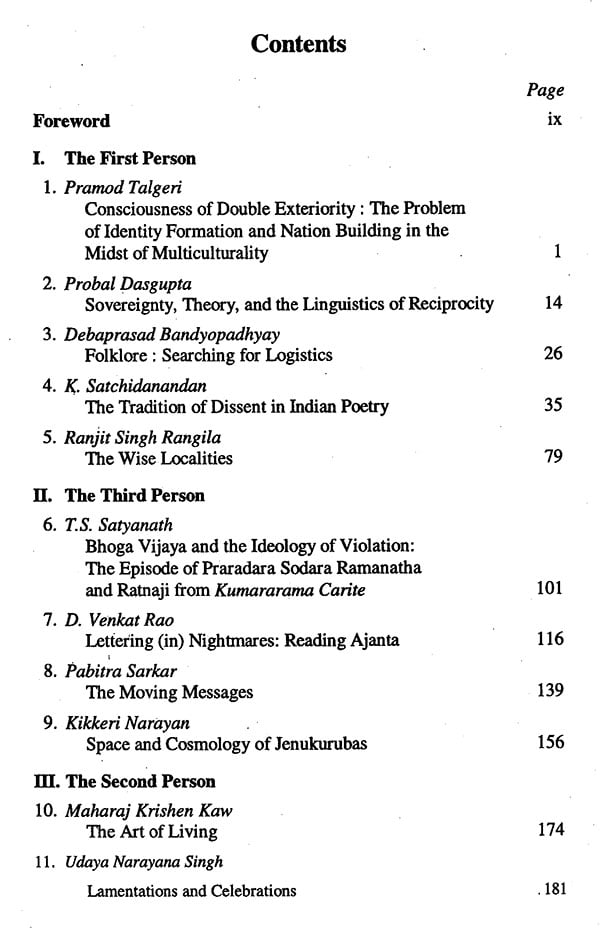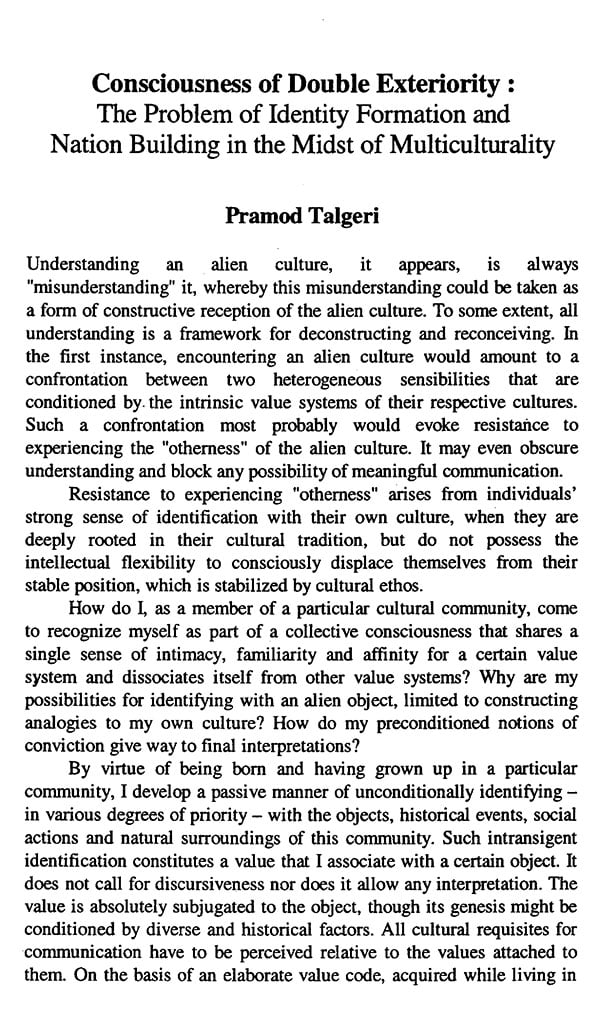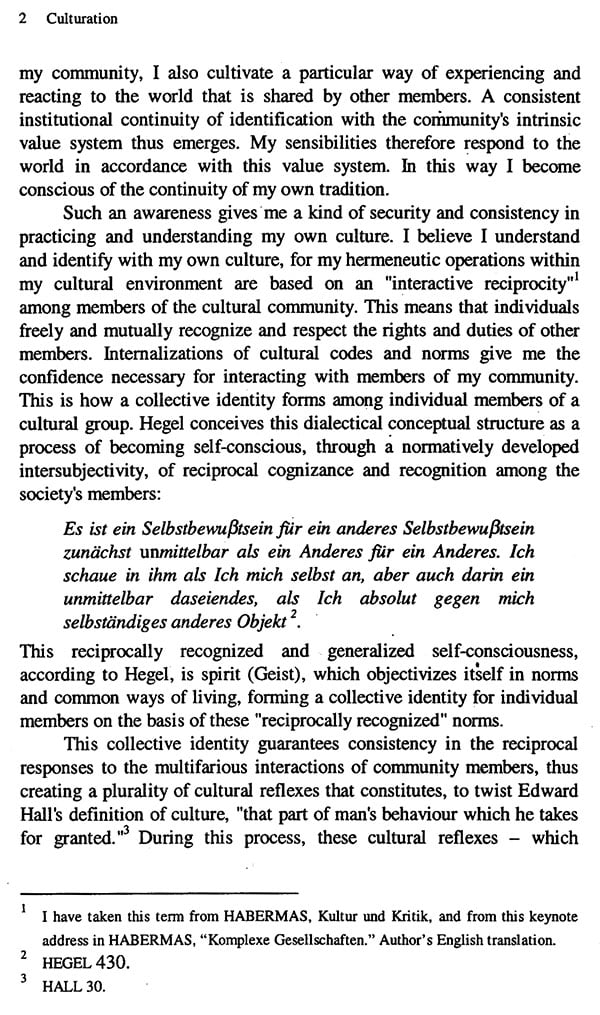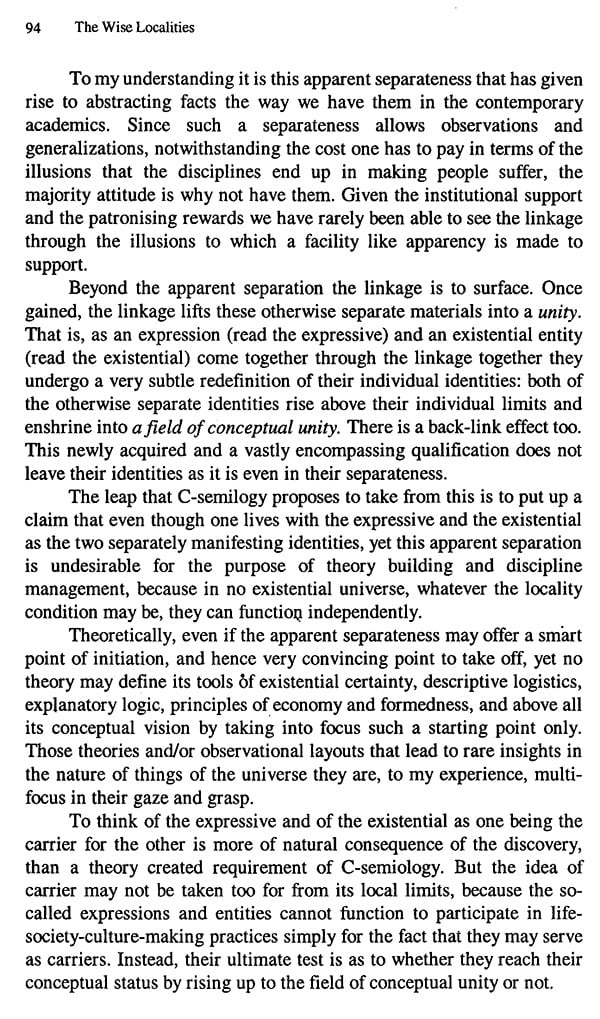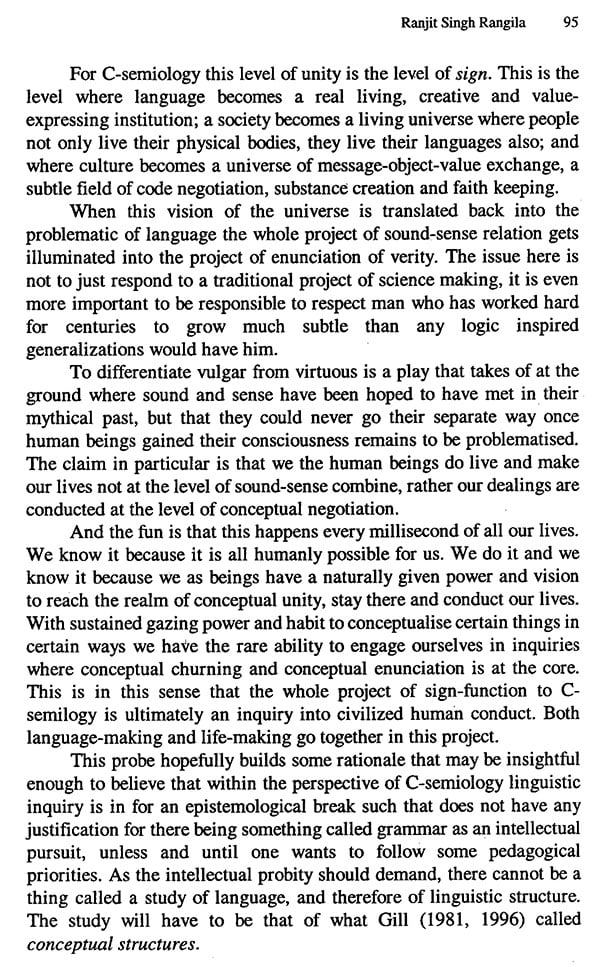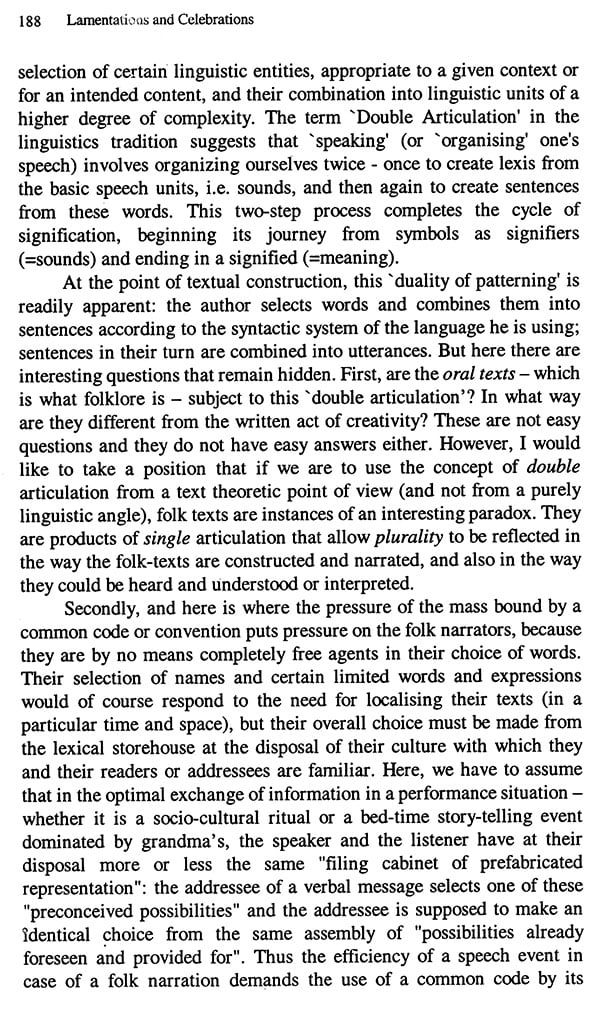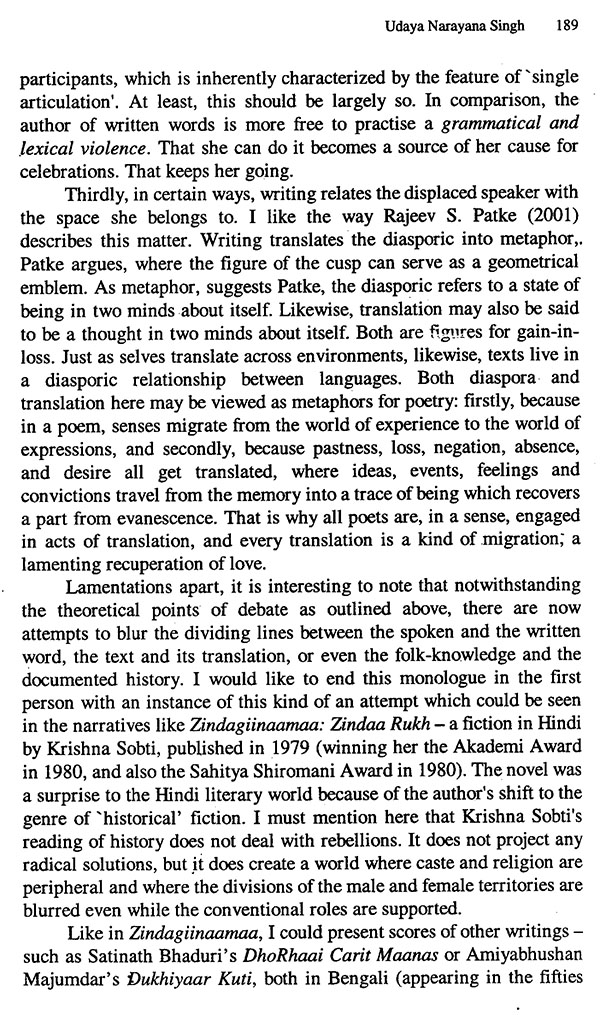
Culturation : Essays in Honour of Jawaharlal Handoo
Book Specification
| Item Code: | NAX324 |
| Author: | Udaya Narayana Singh |
| Publisher: | Central Institute Of Indian Languages, Mysore |
| Language: | English |
| Edition: | 2001 |
| Pages: | 192 |
| Cover: | HARDCOVER |
| Other Details | 9.00 X 6.00 inch |
| Weight | 350 gm |
Book Description
Born on July 01, 1941 at Srinagar in Jammu & Kashmir Jawaharlal Handoo had his college education in his native state and received his Doctoral Degree from Kurukshetra University. He was a Senior Fellow of U.G.C. in the same University before he began his career as a Lecturer in Kashmiri in the Northern Regional Language Centre, Patiala of the Central Institute of Indian Languages. In 1972, he took over as" the head of the Folklore Unit in the Institute. He is involved in the folkloristic studies and has not only carved a niche for himself but also has placed the Institute in the international scene as a Center for Advanced Studies in Folklore.
As a folklorist, Dr. Handoo has more than 20 books to his credit. To mention a few : Folktales of India, Folklore in the Changing World, The Epic: Oral and Written, Folklore: An Introduction and Current Trends in Folklore. He has also authored more than 50 important research papers on various aspects of Folklore and most of these have been published in reputed journals and books edited by renowned scholars.
As an internationally renowned scholar, Dr. Handoo is associated with many reputed scholars like Drs. Peter J. Claus, Lucian Miller, Richard Wolf and Leela Prasad. He has visited Universities of various countries such as Indiana University, California State University, Hayward University, University of British Columbia, Vancouver (Canada), University of Helsinki, University of Turku and Abu Academy (Finland), University of Stockholm and University of Uppsala, (Sweden), University of Oslo, and University of Bergen (Norway), University of Rajshahi,, University of Dhaka and Bangla Academy in Bangla Desh, National Museum of Wales, Cardiff, (U.K.) and Mahatma Gandhi Institute, Moka, (Mauritius) besides Indian Universities.
Dr. Handoo has been honoured with several awards, fellowships and grants for his contributions to the study of Folklore. These include: First Subsidy Award from Jammu & Kashmir Academy of Art, Culture and Languages, National Award (First Category) for Kashmiri and Hindi Folksongs and 3 year Doctoral Fellowship from the then Ministry of Education and Social Welfare, Government of India, 3 year Post- Doctoral UGC Senior Fellowship from the University Grants Commission and Doctor of Philosophy (honoris causa), Academy of Folklore, Calcutta.
Dr. Jawaharlal Handoo is a member of many learned bodies and societies in various capacities. He is the President of Indian Folklore Congress since 1986 and Vice-President, International Society for Folk Narrative Research (ISFNR) since 1995. He is an Invited Full Member.
Folklore Fellows, Academy of Science and Letters, Finland since 1990; Member Advisory Committee, Folklore Fellow Summer Schools, Turku, Finland since 1991; Member Advisory Committee, International Society for Ethnology and Folklore (SIEF), Germany since 1989; Member, World Archaeological Congress, U.K. since 1986; He is the editor of Journal of Indian Folkloristics since 1978; Member Editorial Board, PILC Journal of Dravidic Studies, Pondicherry since 1991; International Corresponding Editor, Journal of Folklore Research, Indiana University, U.S.A. since 1983; International Corresponding Editor, Journal of Cultural Analysis, University of California, Berkeley, U.S.A. since 1999; and Member International Editorial Board, Folklore, London since 2000.
He was a Member Commission on Folklore Theory (ISFNR) from 1984-1989 Review Editor Current Anthropology, B.C. Canada from 1980-1983 Secretary Place Name Society of India, Mysore from 1983 to 1984 and Editorial Adviser, Encyclopedia of Karnataka Folk Culture Madras from 1989-1990. He was instrumental in bringing the XI ISFNR Congress from outside Europe for the first time to India, which was jointly organized by the CIIL, Mysore and ISFNR in 1995. It was a landmark in the history of Folklore research and became the Mysore Congress.
Besides these achievements, Dr. Jawaharlal Handoo has ensured the sustained flowering of the discipline by inspiring and initiating many young scholars into Folklore. This volume is a tribute to Dr. Handoo to celebrate his contributions to the discipline of Folklore.
In the history of knowledge formation and knowledge-generation, disciplines often quite hostile to one another - have been found to be converging. Such confluences are more evident at the present moment. In the borderlines of such largely overlapping fields lie those who give birth to new approaches to the study of man and nature two most unexplained and inexplicable results of a certain kind of creativity. As students standing at cross-roads we soon realize that events and formations often dwarf analysts and leave them much less enlightened than they would like to be. Among those scholars who have spent their life-time in unearthing the mutually engaging forces of language and culture, I would like to include, with some sense of pride, Jawaharlal Handoo, a very distinguished colleague of the CIIL fraternity. Handoo has been a student of folklore studies with stupendous amount of published work. The professional research work as well as creative texts crafted as interventions and lores alive that have been included in this volume are all dedicated to honour Handoo on his attaining 60 productive year. To that extent, Culturation is to be viewed as our humble way of honouring a scholar in the Indian tradition on his sastipuurti literally completion of 60" year. But more importantly these are to be taken as promises of projects in culture studies that Handoo would have liked to have been undertaken anyway by his numerous colleagues and students spreading over different corners of the globe.
The term culturation in the title of this anthology would probably be scorned by the purists and scoffed by others. And yet, we use the term to mark the ideas that build on language as an inherent and inseparable part of culture, and also as a process that is beyond grammar.
As someone who has watched Jawaharlal Handoo mainly from an outer window, I hesitate in sewing up the papers included in this volume together, as I think a more appropriate tribute to his efforts in promoting the discipline of folklore would be to ensure that more manpower gets created in this area, that serious efforts be made to absorb such developed manpower in applied folklore studies, and to see that some of this gets to practical applications in solving, or in at least, in understanding the complex and overlapping area of language and culture studies.
Nevertheless, the papers presented here, I am sure, would survive the Acadine test. As we know, Acadine is a fountain of Sicily with magic properties, mentioned by Diodorus Siculus. Writings were thrown into it to be tested; if genuine they floated, if spurious they sank to the bottom.
By presenting this academic offering to a scholar of extra-ordinary calibre, we are only honouring ourselves.
